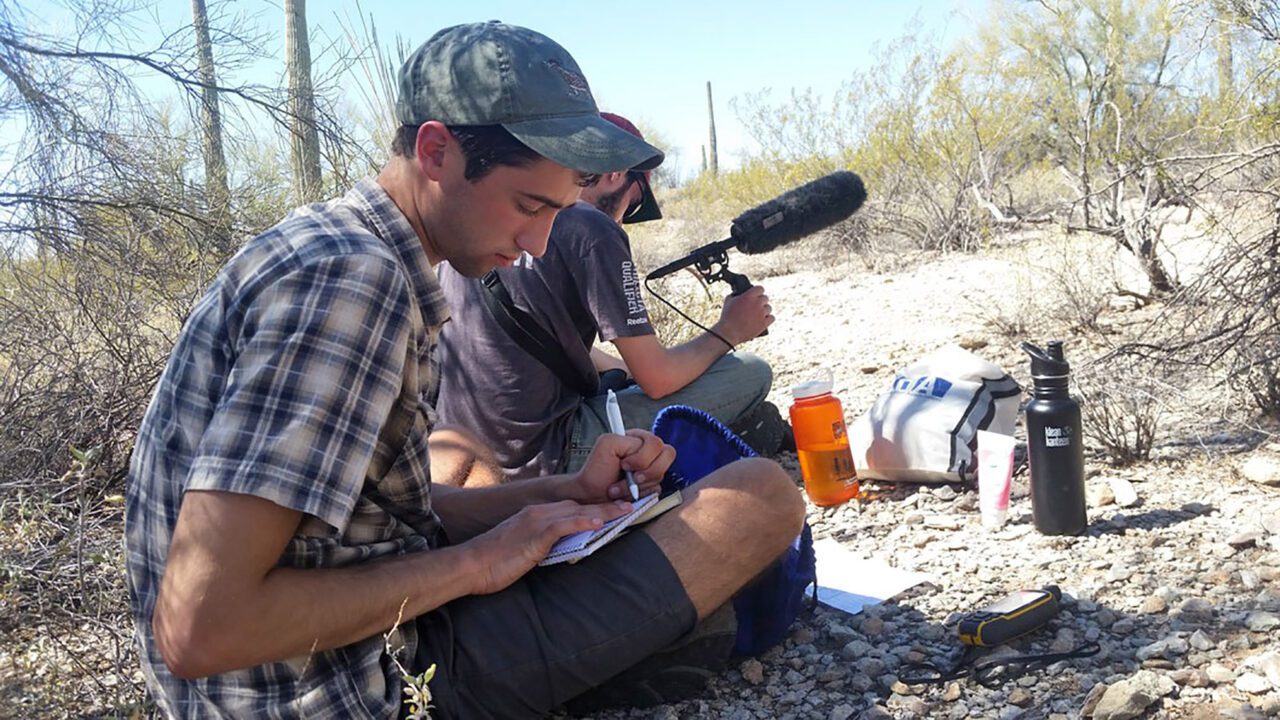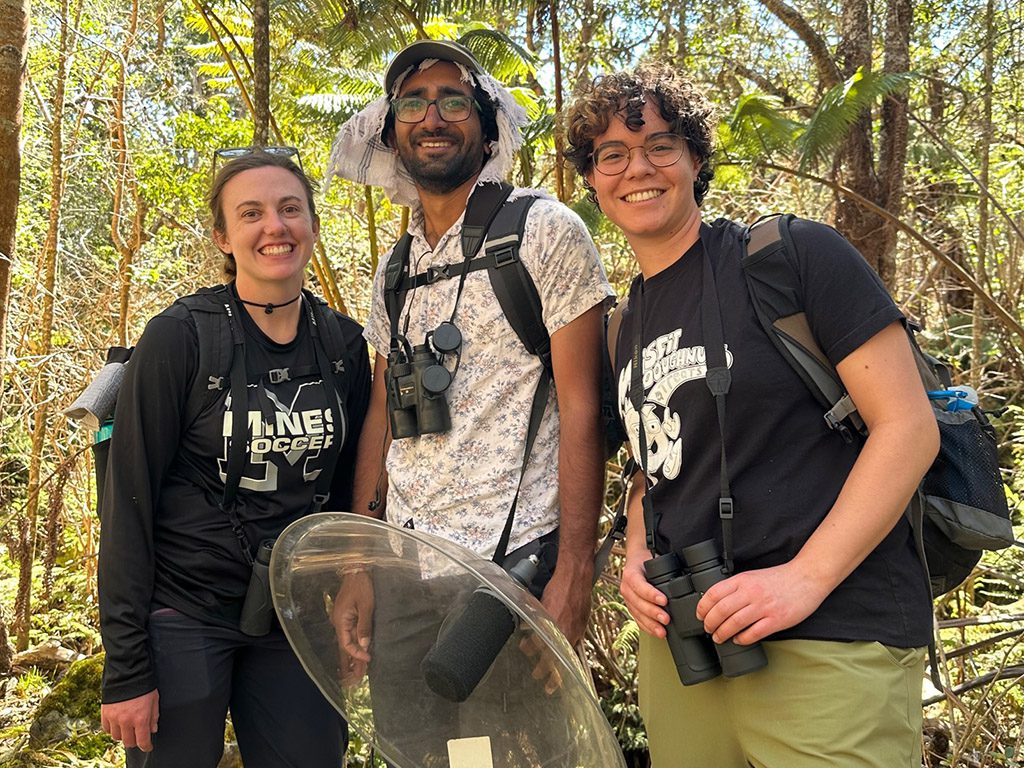Research

Opportunities to become involved in bird-related work abound at Cornell. Getting involved can be as simple as helping a graduate student in the field for a few hours a week, or as intense as conducting your own undergraduate honors thesis, spending long hours crunching data and conducting research in some far-away field site.
Research funding for students
Current Cornell undergraduate students can apply directly for up to $2,000 in research funding from the Lab of Ornithology (rolling deadline). Also note that other sources of research funding exist for Cornell undergraduate students. For example, see the CALS funding opportunities.
The Lab offers summer research experiences as part of our Experiential Learning Grant (ELG) program. ELGs typically take place for 10 weeks during the summer, but timing can be modified. Research mentors apply for these funds and then interview students for the available positions. If you are a student currently working with a research mentor and would like to be considered for an ELG, encourage your mentor to apply for funds.
For research mentors
Research mentors affiliated with the Lab or CUMV can apply directly for Experiential Learning Grant funding (February 1 deadline annually).
Research mentors overseeing a student with funding needs should encourage the student to apply directly for Student Research Funding from the Lab of Ornithology, and research funds from across Cornell (e.g., CALS research funding opportunities).
How do I get involved?
Research becomes a central part of the college experience for some students. Every year, Cornell undergraduates make new scientific discoveries, work with researchers in dozens of labs, and author many peer-reviewed scientific papers. Cornell students often extend their research experiences by participating in scientific conferences, taking semesters abroad, or working at field sites around the world. For instance, one long-term project that provides excellent opportunities for students is the Hubbard Brook Field Ornithology Program, but many other opportunities exist, with new projects starting each year.
The life sciences world at Cornell is vast. This institutional breadth is a great asset to Cornell students, but it can be a bit daunting to navigate as you first search for opportunities. How do you find the right mentor? A fulfilling part-time job? A compelling project? A fun lab group?
There is really no one-stop-shopping strategy for such opportunities. The best approach is to assess your options while seeking advice from as many people as possible. Browse the Mentors & Courses section of this website to find out who is doing what with birds all around Cornell. At the same time, talk to people you already know (fellow undergrads, your professors, faculty advisors, TAs) or to the knowledgeable and well-connected staff in the Office of Undergraduate Biology.

Keep two things in mind: first, almost everybody is initially a bit nervous about contacting potential research sponsors. Perseverance will pay off. Second, Cornell is a friendly place, and virtually all scientists love to talk to students who show an interest in what they do outside of the lecture hall.
Many research opportunities arise serendipitously. Attend Ornithology Seminar to network and learn about opportunities. Keep an eye out for posted internships and research assistantships, but be sure to contact potential mentors directly as well. Visit relevant professors during their office hours, or contact researchers to set up a meeting time. Note that direct contact by phone or by walking into a lab is often more productive than sending an email. Most faculty get hundreds of emails each day so there is a real risk that your query will get lost.
If you are sending an email query, describe your interests and background in the message. Be as concrete as possible about why you are interested in their area of research and in working with that particular person. Describe any relevant skills or experiences that you already have, but don’t be afraid to say that you are just starting out. Be sure to ask the recipient to forward your email to their lab group and other Cornell colleagues if they aren’t in a position to take you on themselves.
